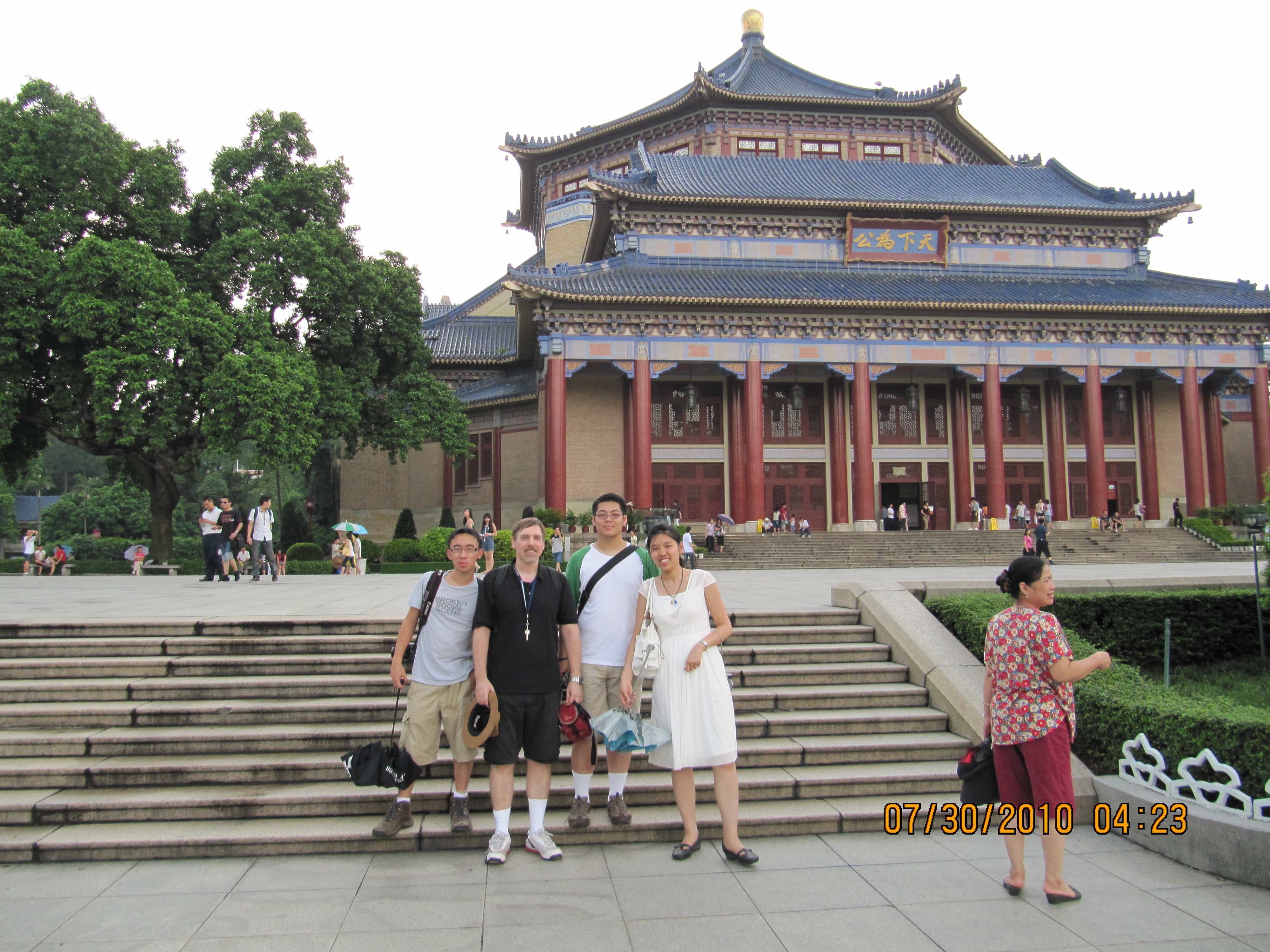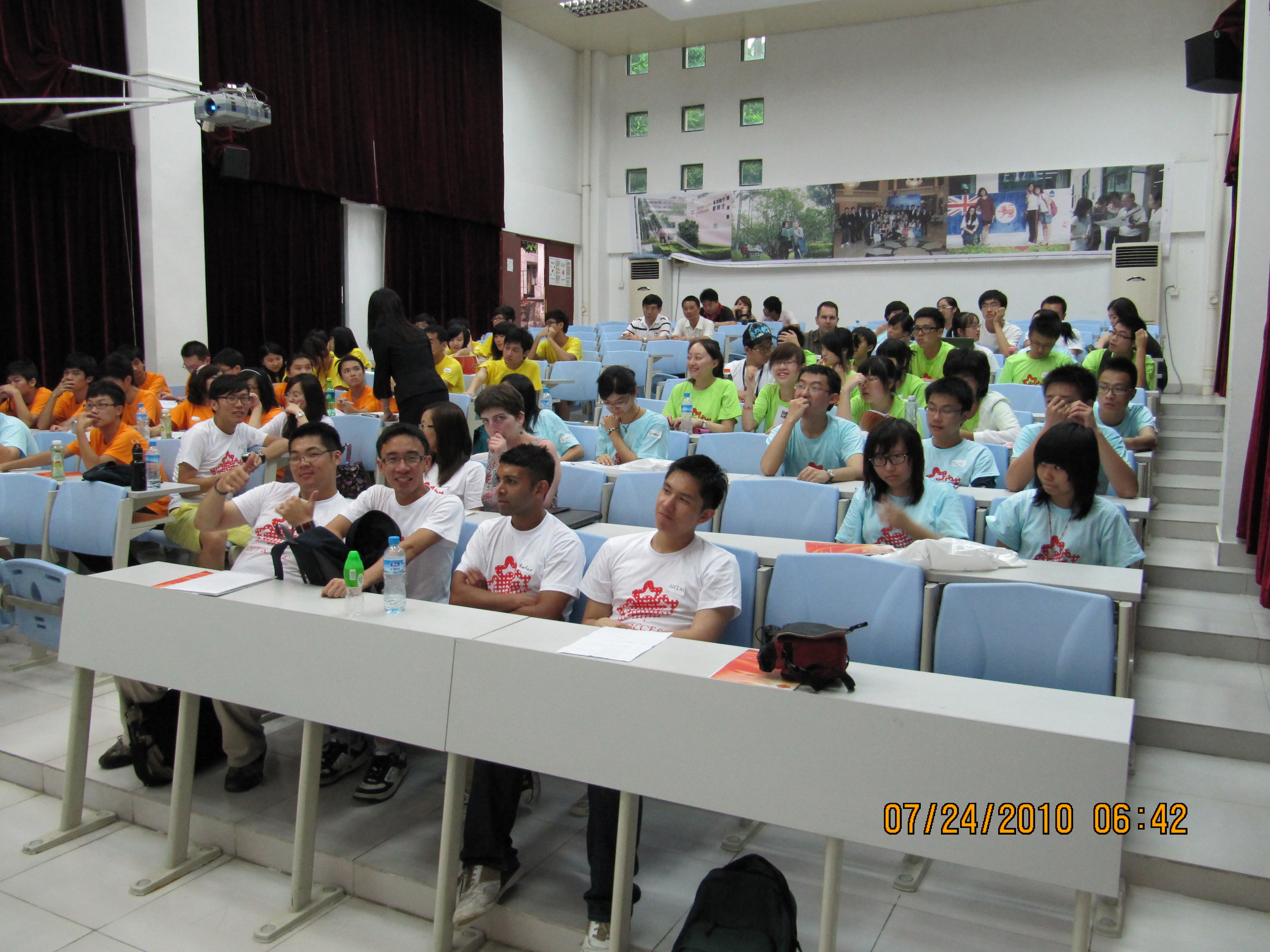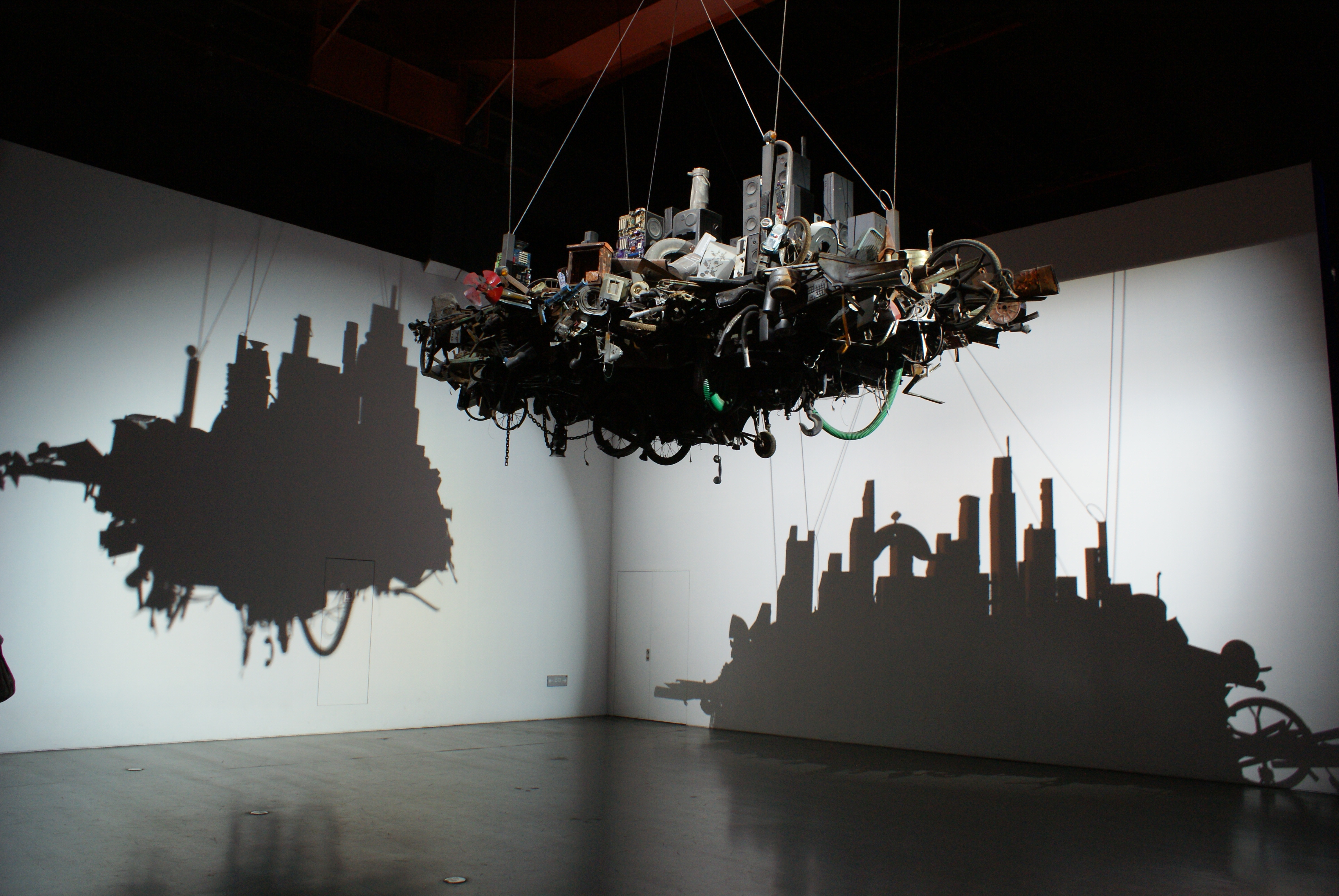Team:Toronto/Human Practices
From 2010.igem.org
| Home | Project | Design | Protocols | Notebook | Results | Parts Submitted to the Registry | Modeling | Software Used | Human Practices | Safety | Team | Official Team Profile |
|---|
Contents |
Human Practices
This year, the Toronto iGEM team partnered with UTACCEL to bring synthetic biology to high school students in China! We designed a six-hour course entitled "Adventures in Biotechnology" which was delivered to two dozen high school students over the course of a 10-day academic conference. Our goals were threefold:
- Spread the word about synthetic biology.
- Experience a different perspective on the demand for energy.
- Have fun!
About UTACCEL
University of Toronto Association for Canada-China Exchange of Leadership (UTACCEL) is an officially recognized student group at the University of Toronto. The organization’s goal is to develop programs that facilitate cultural and knowledge exchange between students in Canada and China. One of their main programs is an annual academic conference in China. Through an intensive interview process, UTACCEL recruits Seminar Leaders from the University of Toronto student body. Seminar Leaders design seminars courses and deliver them to Chinese students during a 10-day conference. Seminar Leaders and delegates also interact with each other in various other ways such as workshops, team competitions and social activities. This year's conference was held at Huamei International High School in Guangzhou, China from July 24th to Aug 2nd.
Adventures in Biotechnology - Course Description
The course introduces key concepts in biology which will be used as a basis to explore current topics in bioinformatics, systems biology and synthetic biology. High throughput science is generating data at an ever increasing rate and computers and software tools are now allowing us to better interpret this data. Our understanding of biological systems has matured. We no longer think of cells as largely random collections of ‘ugly bags of mostly water’. Rather, life is now understood to consist of complex, integrated systems of circuits and components. Our ability to understand complex systems coincides with extraordinary technologies which now allow us to not only read the genetic code but actually write it. This opens up enormous possibilities in biotechnology. The question is, what will we do with this power?
- Media:Toronto_UTACCEL_Evolution.ppt
- Media:Toronto_UTACCEL_Cell_biology.ppt
- Media:Toronto_UTACCEL_Genetics.ppt
- Media:Toronto_UTACCEL_Bioinformatics.ppt
- Media:Toronto_UTACCEL_Systems_Biology.ppt
- Media:Toronto_UTACCEL_Synthetic_Biology.ppt
A typical day at the conference
Wake up at 6 a.m. to the sound of blaring classical music. Hand shower (for some only cold water available) and head to breakfast - typically buns, warm soy milk and hard boiled eggs (widely agreed by the seminar leaders to be the best meal of the day). Weather pushing 40 degrees C with nearly 100% humidity, bring an umbrella! Now climb six flights of stairs to your assigned classroom and turn on the air conditioner (does it work today? 50/50). Teach until lunchtime. Steamed rice and assorted sides. Make plans with other seminar leaders to venture off campus to avoid cafeteria food for dinner. Afternoon "free-time" a.k.a. time to refine lectures, handouts for next class and hold office hours. Supervise evening program consisting of skills workshops and challenges. Roll into bed by midnight. Do it all again tomorrow.
Why China?
The global demand for energy is steadily increasing worldwide. However, the inhabitants of developing nations like China whose soaring economy and large population are beginning to demand access to resources akin to those enjoyed by their western counterparts will push the demand for energy to new heights. Meeting this demand will mean continued dependence on fossil reserves despite the desire to move to alternative and renewable sources of power. We felt that first hand experience of China would complement our text book understanding of the human issues surrounding this ongoing energy debate.
What did they learn
Students were introduced to important foundational concepts in evolution, cell biology, genetics, molecular biology, bioinformatics, systems biology and finally synthetic biology. They learned to define synthetic biology and were encouraged to think about issues raised by the power of the technology within an informed context. In addition, students were exposed to a western style of teaching akin to what they would face if they travel abroad for a university degree which many of the students attending the conference were considering.
What did we learn
There is no substitute for first hand experience. China is, in a word, crowded. But, conveying this in words is different from feeling it, walking the streets and seeing her people at work and at play. At once a mixture of old and new, archaic and sophisticated yet with deep history and pride, China is a nation faced with issues we will all face as world population increases. Those of us who also had an opportunity to attend the World EXPO in Shang-hai got a glimpse of various visions for a better world powered by new knowledge, technological advances and creative will. Clearly, energy demand will not pause while we carefully work out the details. Inevitably, mistakes and compromises will be made and this will leave us with a legacy of picking up environmental pieces despite our best intentions.
 "
"



